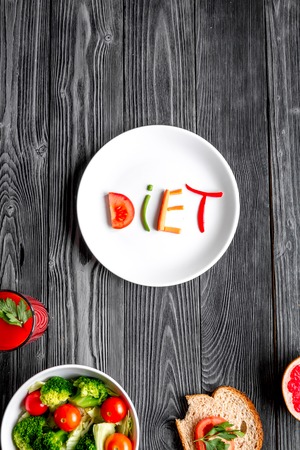1. Introduction to the British Diet
The British diet is a fascinating blend of tradition and modernity, shaped by centuries of history, cultural exchange, and regional diversity. From the hearty full English breakfast enjoyed on a lazy weekend morning to the comforting Sunday roast shared with family, food in Britain carries both nostalgic value and evolving trends. While classic dishes such as fish and chips or shepherd’s pie evoke images of cosy pubs and seaside towns, contemporary influences are transforming plates across the UK, with global flavours and health-conscious options increasingly woven into daily meals. Exploring the British way of eating reveals not just what people consume, but how food rituals connect communities and mark the rhythm of everyday life—from afternoon tea rituals to spontaneous curry nights. This unique interplay between the old and the new forms the foundation for understanding how Britain’s dietary choices may be shaping broader aspects of wellbeing, including the topic at hand: premature ageing.
2. Nutritional Pitfalls in the British Diet
When reflecting on the British diet from a personal perspective, there’s a distinct blend of nostalgia and concern. The classic British fare—think full English breakfasts, ready meals, crisps, and sweet treats—forms an integral part of local culture. However, these much-loved foods often come with hidden drawbacks that can accelerate premature ageing.
Common Dietary Patterns in Britain
Over recent decades, Britain has witnessed a significant rise in the consumption of processed and convenience foods. While these options suit our busy lifestyles, their nutritional profiles leave much to be desired. Supermarket shelves are lined with products high in salt, sugar, and unhealthy fats. Even traditional favourites like pies and fish and chips are often laden with additives.
Key Components and Their Health Implications
| Component | Typical Sources | Potential Impact on Ageing |
|---|---|---|
| Processed Foods | Sausages, ready meals, packaged snacks | Increased inflammation, oxidative stress |
| Salt | Crisps, canned soups, takeaways | Raises blood pressure, damages skin elasticity |
| Sugar | Biscuit tins, puddings, fizzy drinks | Accelerates glycation (skin ageing), energy crashes |
| Saturated Fats | Pies, pastries, fried foods | Clogs arteries, impairs cellular repair |
A Personal Reflection on Food Choices
I have fond memories of tucking into buttered toast or grabbing a cheeky bag of chips after a night out—these experiences are quintessentially British. Yet over time, I’ve come to appreciate how frequent indulgence in these habits takes its toll on vitality. In my own journey towards a more balanced diet, I’ve noticed improvements in my skin’s glow and overall energy levels simply by reducing processed options and keeping a keener eye on labels. It’s clear that while British comfort food holds a special place in our hearts (and tastebuds), being mindful of what goes into our shopping baskets is crucial for ageing gracefully.

3. The Science of Ageing and Diet
The connection between what we eat and how we age has never been more apparent, thanks to a wave of pioneering research both in Britain and internationally. It’s a topic that resonates deeply with me, as my own journey through British food culture has made me increasingly aware of how every meal shapes not just my energy levels but also the very texture and glow of my skin. Scientists have now confirmed that our dietary choices can accelerate or slow down the biological ageing process, making what lands on our plates far more significant than we once believed.
The Role of Nutrition in Cellular Ageing
At the heart of this discussion is the science of cellular ageing. Our cells are constantly under attack from free radicals—unstable molecules that cause oxidative stress and damage. British research, including studies conducted by universities such as King’s College London, has highlighted the protective role of antioxidants found in colourful fruits, vegetables, and whole grains, which are often missing from a classic British fry-up or processed convenience foods. Antioxidants neutralise free radicals, helping preserve youthful skin and supporting overall vitality.
Skin Health: More Than Just Creams
While many Brits reach for topical creams in pursuit of glowing skin, leading dermatologists and nutritionists agree that true radiance begins within. Diets rich in omega-3 fatty acids (think salmon, mackerel, or even flaxseed), vitamin C (from berries and citrus), and collagen-supporting nutrients are directly linked to fewer wrinkles and firmer skin. International studies back this up, showing populations with traditional diets high in these nutrients enjoy not only better skin but also greater longevity.
Energy & Longevity: The British Paradox
Interestingly, while Britain boasts a wealth of natural produce, there remains a tendency towards high-sugar snacks and processed meals—a habit now tied to increased inflammation and premature ageing. Recent UK-based cohort studies have revealed that individuals who consume excessive refined sugars and trans fats report lower energy levels and show earlier signs of biological ageing compared to those who adopt a Mediterranean-inspired diet abundant in fresh vegetables, oily fish, nuts, and olive oil.
In essence, the latest science tells us that every choice matters—from the humble cuppa to the Sunday roast. By embracing a diet rich in nutrient-dense foods and stepping away from ultra-processed options, we can nurture not just our appearance but our energy and lifespan too—an insight that feels as refreshing as a walk through the British countryside itself.
4. Spotlight on British Beverages
As I stroll through the bustling streets of London or settle into a cosy village pub, it’s impossible not to notice the central role beverages play in British life. From the ritualistic morning cuppa to after-work drinks with mates, what we drink is woven into our social fabric—and, intriguingly, our ageing process.
The Quintessential Cuppa: Tea and Its Complex Effects
Tea is more than just a drink; it’s a national institution. The antioxidants in black and green tea—polyphenols and catechins—have been shown to fight oxidative stress, potentially slowing down visible signs of ageing. However, adding sugar or full-fat milk (a beloved British tradition) can counteract some benefits by increasing calorie intake and possibly promoting inflammation.
Coffee: A Double-Edged Sword?
Coffee culture has surged in popularity across the UK, from artisan cafés in Shoreditch to high-street chains everywhere. Rich in antioxidants, moderate coffee consumption is linked to lower risks of certain age-related diseases. Yet overindulgence can disrupt sleep patterns—a key factor in premature ageing—and heighten stress hormones, which may speed up skin ageing.
A Tipple Too Far: Alcoholic Beverages
Whether it’s a pint at the local or celebratory bubbles, alcohol punctuates many British gatherings. While red wine contains resveratrol (an antioxidant thought to have anti-ageing effects), excessive drinking dehydrates skin, impairs liver function, and accelerates cell damage. Socially, pubs are places of connection, but healthwise, moderation is vital.
| Beverage | Potential Ageing Impact | Common Consumption Habits |
|---|---|---|
| Tea | Can slow ageing due to antioxidants; added sugar/milk may reduce benefits | Usually several cups daily; often with milk & sugar |
| Coffee | May protect against age-related diseases; excess disrupts sleep/stresses body | 1–3 cups daily; often with milk/sugar |
| Alcohol | Excess speeds up skin ageing & organ decline; moderate red wine may help | Pubs/social events; varies by region & occasion |
Beverages aren’t just about hydration—they’re cultural touchstones shaping how Brits connect and celebrate. By understanding their nuanced effects on ageing, we can make more mindful choices while still relishing those cherished moments around the teapot or at the local pub.
5. Healthier Twists on British Classics
There’s something so comforting about a steaming plate of shepherd’s pie or the golden crunch of fish and chips. Yet, as I’ve discovered through my own kitchen experiments, traditional British fare often comes with a hidden cost: high saturated fats, refined sugars, and excess salt—all key players in premature ageing. But what if we could keep the nostalgia and flavour, while giving our bodies a healthier future? Here are some creative updates to beloved classics that let us savour local favourites without accelerating the hands of time.
Lightening Up Fish and Chips
Battered cod and deep-fried potatoes are iconic, but switching to oven-baked white fish coated in wholemeal breadcrumbs delivers that satisfying crunch with far less oil. Swap regular chips for thick-cut sweet potato wedges drizzled with olive oil—a simple change that adds antioxidants and vitamins while reducing inflammation linked to ageing.
Modern Shepherd’s Pie
Who can resist a bubbling shepherd’s pie on a rainy evening? For a healthier spin, use lean minced turkey or lentils instead of fatty red meats. Top with cauliflower mash blended with a touch of butter and chives—creamy, satisfying, and packed with nutrients that support skin health.
Energising Afternoon Tea
The British ritual of afternoon tea doesn’t have to mean sugar overload. Try scones made with wholemeal flour and Greek yoghurt, served alongside fresh berries rather than clotted cream. Replace sugary jams with chia seed preserves for an antioxidant boost—perfect for maintaining that elusive youthful glow.
Everyday Tips for Age-Defying Flavour
Cooking with fresh herbs like parsley, mint, or rosemary not only elevates flavour but also provides polyphenols that combat oxidative stress. When making gravy or sauces, use homemade vegetable stock and add plenty of onions and garlic—both traditional British staples rich in anti-ageing compounds. By embracing these healthier twists on familiar recipes, you can celebrate British culinary heritage while keeping your skin radiant and your energy high for years to come.
6. Embracing Balanced Living in the UK
As I’ve wandered through British farmers’ markets and enjoyed the comfort of a classic Sunday roast, I’ve come to appreciate how deeply the UK’s traditions support a balanced lifestyle—one that can help combat the signs of premature ageing. Mindful eating is at the heart of this approach. It’s not just about what you eat, but how you savour each bite; taking time over meals with friends or family, pausing for tea breaks, and truly tasting local flavours. This mindful attitude extends beyond food, fostering a sense of presence and gratitude that reduces stress—an often overlooked factor in skin health and overall ageing.
Celebrating Seasonal British Produce
One of the joys of living in Britain is access to a bounty of seasonal produce. From tender spring asparagus to rich autumnal root vegetables, seasonal eating isn’t just flavourful—it’s also nutritionally potent. Freshly picked berries from Kent, Scottish salmon, and leafy greens grown in local allotments all bring an abundance of antioxidants, vitamins, and healthy fats to the table. These nutrients support skin elasticity and cellular repair, offering natural protection against premature ageing.
Holistic Routines Rooted in British Life
The British lifestyle is peppered with rituals that encourage holistic wellbeing. Think brisk morning walks along the coast or through city parks—gentle exercise that boosts circulation and gives skin a healthy glow. There’s also a cultural emphasis on balance: enjoying occasional indulgences like fish and chips while generally favouring home-cooked meals made with fresh ingredients. Many Brits swear by their daily skincare rituals, often passed down through generations, focusing on gentle cleansing and moisturising rather than harsh treatments.
The Takeaway: Age Gracefully with British Wisdom
Embracing balanced living in the UK means nourishing your body with seasonal foods, practising mindful eating, and weaving restorative habits into daily routines. By integrating these elements—rooted in both tradition and modern wellness trends—you empower yourself to age gracefully and radiate vitality from within.


